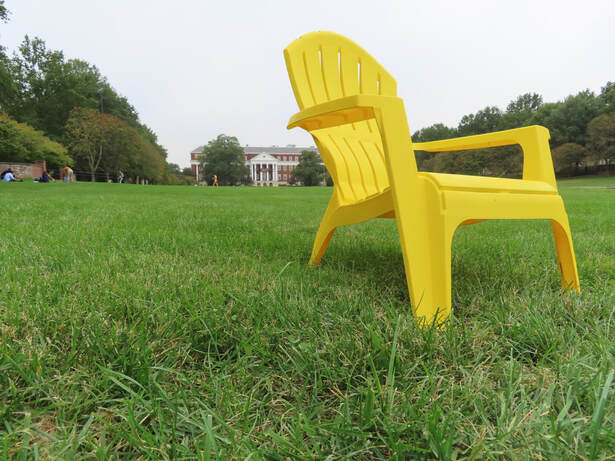Does Seasonal Affective Disorder impact college students?
By Jackie DiBartolomeo
October 23, 2020
Image Credit: Jackie DiBartolomeo for The Campus Trainer
When the weather grows colder in October, it can be tempting to go into hibernation mode. Along with the falling temperatures, fall can bring feelings of isolation and loneliness. Seasonal affective disorder is a major cause of these feelings.
Seasonal affective disorder affects over 10 million Americans each year, according to healthresearchfunding.org. The disorder, which often occurs in the late fall and winter, can bring feelings of low energy, disinterest and depression.
Amy Jean Heilman, a clinical therapist based out of Lutherville Timonium, regularly deals with clients who go through seasonal affective disorder.
“I think the biggest factor is the shorter days, and lack of light is what lots of my clients talk about. They feel like they’re in hibernation,” Heilman said.
As the weather gets colder, Heilman’s clients who deal with seasonal affective disorder experience several symptoms characteristic of the disorder. A change in overall happiness, losing interest in activities one enjoys and feeling less energetic on the daily are all signs someone may be experiencing seasonal affective disorder, Heilman said.
Emily Wayson, a sophomore mechanical engineering major, has experienced some of the symptoms of seasonal affective disorder before.
“I notice myself being happier when it's warm out, I definitely see a change in mood from winter to spring,” Wayson said.
One way Wayson tries to keep her mood up in the fall and winter is to replace outdoor activities that she enjoys in the summer with indoor activities that she can enjoy even in the colder months. She plans movie and game nights with her friends, and listens to music to remain positive. While summer plans tend to be more spontaneous, Wayson is deliberate in making plans during the cold months to stay busy.
With COVID-19 making indoor events difficult to plan, it will be a harder winter than usual to stay positive, Wayson predicted.
Marie Medoff, a sophomore public policy major, leans on her family and friends when experiencing symptoms of seasonal affective disorder.
“It’s important to have a few people you can go to, and in those times when you feel lonely, have someone that’s willing to talk,” Medoff said.
Talking to friends and family in person instead of just texting or calling is important to Medoff. In person connections can help people who might be down during the winter to feel less lonely and isolated, Medoff said.
Josie Ouyang, a sophomore civil engineering major, doesn’t feel isolated when the weather turns cold, but can become angry and frustrated instead.
Ouyang tries to remain around as many of her friends as possible when the weather turns cold. If she spends too much time alone during the winter, she can start to feel depressed and discouraged.
“We’re both body and soul, so the physical does affect us. Our external circumstances do affect our mental well being,” Ouyang said.
One important way to curb the symptoms of seasonal affective disorder is exercise, Heilman said.
“That doesn’t mean you have to go to the gym. It can be taking a walk around the block a few times. It can be using a hula-hoop. Something energetic to help with your endorphins,” Heilman said.
UV lights, which can mimic the feeling of sunlight, can be a good idea for the winter too, Heilman said, recommending starting with 20 minutes a day and working up to 1 hour a day using the light. These UV lights provide the light that one is losing because of the shorter days, Heilman said.
The most important thing Heilman recommends is making sure that one’s symptoms do not indicate a larger issue.
“It’s certainly never a bad thing to go talk to someone to make sure it isn’t something more than just a seasonal issue,” said Heilman.
Monitoring one’s emotions and anticipating the feelings that come with colder weather are important steps in helping seasonal affective disorder, Heilman said.
“Whenever I’m feeling these negative emotions, I’m validating them, and acknowledging with myself that it’s ok to feel this,” Medoff said, “You are not worse for feeling weird.”
|
|
Learn more |
© COPYRIGHT 2020. ALL RIGHTS RESERVED.
|
